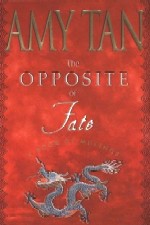Mutant Message Down Under
 by Marlo Morgan (read August 2006)
by Marlo Morgan (read August 2006)This book was recommended by Cassie at Scads of Books. I don't think I would have read it otherwise. The title, the cover, the synopsis were not beckoning to me in any way. But Cassie's review hooked me. This a long review, but I want all this in a 'commonplace', so it all stays.
I started listening to this book on tape. Glad I did because it allowed me to hear Morgan's unusual voice. I laughed so hard at her retelling of real-life events that are unbelievably absurd. And then I became concerned for her. What would I have done in the same situation? Before the first tape ended, however, I went to the library and checked out the book. I had to make note of some of the quotes. And since I had Morgan's voice in my head I could still hear her telling the story as I read.
Morgan finds herself living with a group of Aborigines who refer to themselves as the Real People and to others of the human race as Mutants because they have changed, or mutated, from what is real. One evening Morgan is teaching them about gravy. "Someone commented how symbolic gravy was to the Mutant value system. Instead of living the truth, Mutants allow circumstances and conditions to bury universal law under a mixture of convenience, materialism, and insecurtiy."
Real People don't celebrate birthdays. "To us celebration means something special. There isn't anything special about getting older. It takes no effort. It just happen! We celebrate if we are a better, wiser person this year than last. Only you would know, so it is you who tells the others when it is time to have the party."
When they learned about icing they thought it "symbolized how much of a Mutant's life span is spent in artificial, superficial, temporary, decorative, sweetened pursuits. So very few moments spen dicovering who we are, and our eternal beingness."
I enjoyed the night the Game Woman tore a leaf into pieces and gave each person a piece. The group had to fit the pieces back together like a puzzle. "It only appears the pieces of leaf are separate, as people appear separate, but we are all one. To be one does not mean we are all the same. Each being is unique. No two occupy the same space. People can try to maneuver, but in the end each will return to the right place. Some of us seek a straight path, while others enjoy the weariness of making circles."
"It's okay to try out negative emotions and see how they feel, but it cetainly isn't a place one would wisely want to stay. When the soul is in human form you get to play--to see how it feels to be happy or sad, jealous or grateful, and so on. But you are supposed to learn from the experience and ultimately figure out which feels painful and which feels great."
"The only way to pass any test is to take the test. All tests on every level are always repeated one way or another until you pass."
"A gift is only a gift if you give someone what the person wants. It is not a gift if you give them what you want them to have."
This is a wonderful book that is quick to read. I suggest you start with the audio before moving over to the book. Mutant messages will be working their way in my life for a long time to come, I hope.




